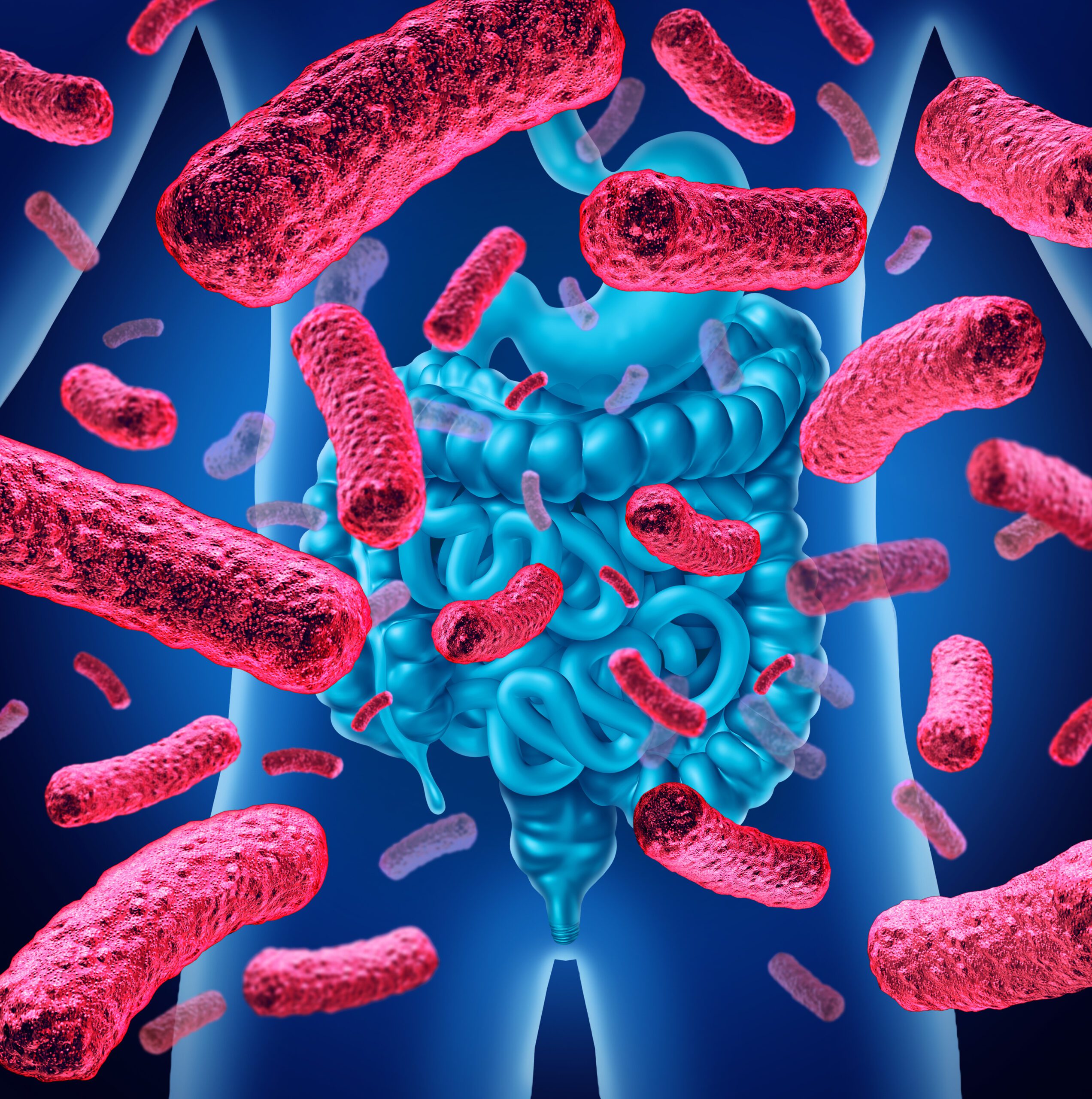
It may sound stranger then fiction but it’s true: the bacteria in your digestive tract may largely determine brain development and adult behavior. Researchers from the Karolinska Institute in Sweden and the Genome Institute of Singapore (led by renowned scientist, Sven Pettersson) reported that the normal bacteria found in your intestines could very well have a huge impact on your thoughts and actions.
Scientists have known for some time that the bacteria cells on your skin and in your gut far surpass the number of human cells. There are approximately 30,000 human genes in the average human body and more than 3 million bacterial genes. Do the math and it turns out that we are, at most, 1% human. It appears that we are far less an evolved species than we ever imagined and we are just beginning to understand the implications of how bacteria shapes our daily lives.
For example, we know that the bacteria we carry around with us may contribute to neurological and behavioral disorders. Intestinal bacteria can affect how our bodies use vitamin B6, which in turn can affect nerve and muscle cells. Bacteria can also influence the development of autoimmune diseases, such as multiple sclerosis. In addition, gut bacteria has been linked to anxiety-related behavior, and certain bacteria species found in the gut are altered in people with autism.
However, this study was the first to take a close look at how bacteria influences brain biochemistry and development.
The study.
Scientists raised mice that did not have a normal gut microflora, or bacteria. Then they compared the brain development, brain chemistry, and behavior to mice that did have normal flora. Those without the bacteria were more active and less anxious than those with. This was discovered when scientists testing for anxiety noticed the mice were allowed to make a choice between staying in a safe, dark box are entering a lighted one. The mice without bacteria spent more time in the lighted box. This and similar experiments showed that the bacteria-free animals were bolder in their behaviors.
Since microbes colonize the intestines soon after birth, Pettersson’s team wanted to know if these microbes influence the development of the brain and if this influence was reversible. After testing, they found that colonizing an adult bacteria-free animal with normal intestinal bacteria did not affect their behavior. However, if the bacteria were introduced early in life, it was possible to reverse the effects. These findings led them to believe that there is a critical period of time during brain development when the bacteria are most influential.
The research team also performed a gene expression analysis of five different regions of the brain. They found the presence of gut bacteria affected approximately 40 genes. The bacteria could influence the signals that occur between nerve cells, even though these microbes were residing in the gut, with an astounding ability to influence if the brain cells will activate or deactivate certain genes.
How can microscopic organisms influence the complex brain?
The question remains: how do these single celled bacteria have such an influence on an organ as complex as the brain? Though there is yet to be a definitive answer, one possibility is that normal gut bacteria may stimulate the Vagus nerve, which connects the brain and the gut. This could be the major link between bacteria and the brain.
Regardless of how it works, this study indicates that animal behaviors are greatly influenced by the bacteria living in the gut. This discovery could be of substantial significance in the study of developmental brain disorders.


In recent years, the quality and authenticity of olive oil have come under scrutiny, with shocking revelations about widespread fraud in the industry. A groundbreaking episode of the popular news program “60 Minutes” shed light on this issue, exposing a disturbing trend of adulteration in many well-known olive oil brands The “60 Minutes” Investigation The […]


The American food system is facing a critical challenge that has been decades in the making. A regulatory loophole from the 1950s has allowed food companies to operate with minimal oversight, potentially exposing consumers to thousands of untested chemicals in their daily diets. This situation has created a significant public health concern that demands immediate […]


This is outrageous and a serious threat to the human brain! Look at these headlines! Recent scientific studies have revealed alarming evidence of nanoplastic accumulation in various human organs, with the most shocking findings related to the brain. A preprint study from early 2024 found particularly concerning levels of microplastics in human brain samples Brain […]